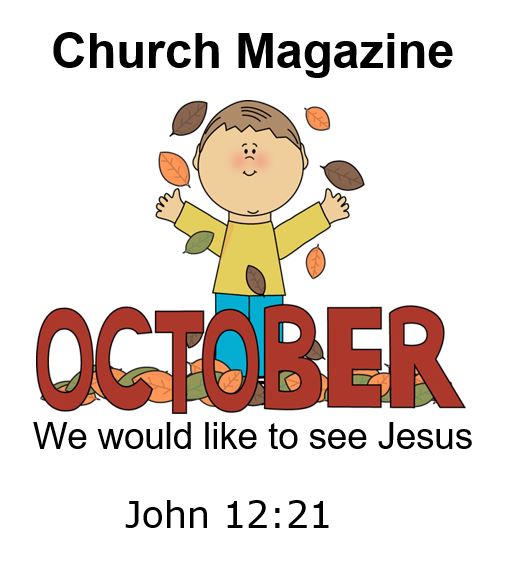Ruth’s Records (October 2020)
Bringing in the Sheaves
Late September or early October is the time we remember the harvest when usually our churches are decorated and, in our church. various provisions are brought along to be given to those in need.
We used to have a Harvest Supper on the following Monday evening, often followed by an auction of the produce. Times have changed, and many people today need food to help them feed their families or themselves, and Basics Banks have been set up all over the country. (As you will have read last month, we plan to start a branch here at SBC once we re-open our doors “post-Lockdown”. Eds.) During “Lockdown”, organisations and others undertook deliveries to those in need, those who were in the vulnerable, elderly category; shielding, or in the NHS, and again we feel great gratitude to these numerous participants, essential workers, and those involved with the NHS. This year has taught many that indeed “no man is an island “, and that we depend on each other. So many people will have lost employment and wages and will need help still.
The poet, John Milton, describes this time as the “season of mists and mellow fruitfulness” and that is such a beautiful description of Autumn. Fruits of all kinds are in the garden – apples, pears, blackberries etc., and the hedgerows have elderberries, crab apples and so on; the cornfields have been harvested, and orange pumpkins adorn the fields with their bright colours. The Bible quotes: “While the earth remains, there will be planting and harvest”, but we have been made increasingly aware how much the planet, the seas, rivers, countryside, skies and beaches have been damaged by mankind, and many creatures have been pushed to the edge of extinction. For so many, in so many diverse ways, this year has been a wake-up call!
Harvest time in the countryside used to be a time of great rejoicing after much hard work. (The Bible has a description of such a time in the Book of Ruth when the custom of gleaning is highlighted.) The farmers and workers toiled to get the harvest in for the winter stocks and the straw was baled up, or built up in a rick for winter bedding. Before machinery, the corn had to be cut with scythes, left to dry, and then gathered up into sheaves before being taken for threshing. These sheaves looked so good – not like the large “swiss rolls” covered in black polythene that adorn the fields now.
The end of the harvest was celebrated with great joy and relief and it was customary for some of the workers to have been hired to help out with the arduous work. There were hiring fairs dotted all around the country and Weyhill was the famous one near here. Also, the craft for women of making corn dollies by plaiting straw had been going on for hundreds of years. Wheat stalks were popular but those of oats and rye could be used. People gave small plaited examples to friends and sometimes they were pinned on clothes for decoration. For many hundreds of years they were considered good luck tokens but now the tradition has been developed as a craft and the results can be small, large or very intricate. It seems that the old craft died out when the inevitable farm machinery brought in different methods and the corn were grown with shorter stems.
There is a rhyme from the 18th century which says:
“Over one, under two. Pull it tight and that will do.”
That makes it sound easy, but I tried it some years ago and, as usual it was easier said than done!
The harvest custom of having a Harvest Supper provided by the farmer for all the workers is another old tradition. The Harvest decorations in churches are relatively modern having been introduced in 1843 by Robert Stephen Hawkes, the vicar at Moorwenstow in Cornwall. The custom spread all over the country. It is thought that the idea occurred to him when he was thinking of the Anglo-Saxon celebration of “first fruits” on 1st August Lammas. Maybe the idea of the Harvest Suppers was prompted by the old Harvest celebrations. There is a number of Harvest hymns which can be sung at this time.
Remember the old hymn, “We shall come rejoicing, bringing in the sheaves”? So much depends on a good harvest to provide sustenance for the whole world and even if we are not gardeners, nurserymen or farmers we can help by giving money or groceries to help those who are so disadvantaged in the world.
Thank God for the Harvest.
Ruth K
